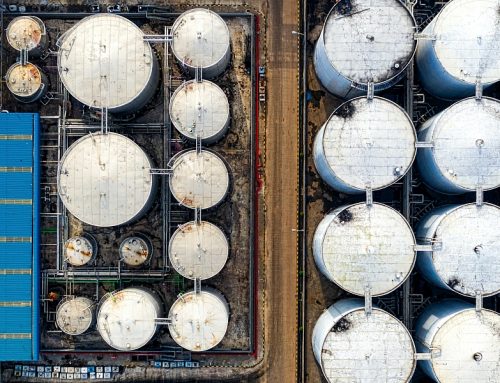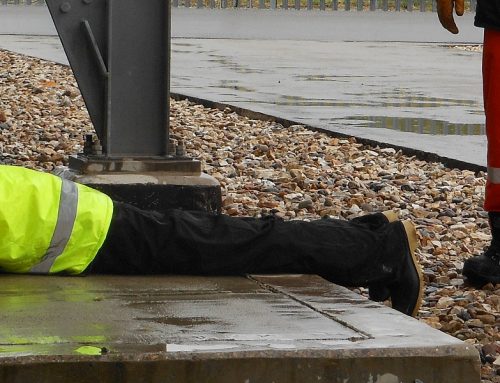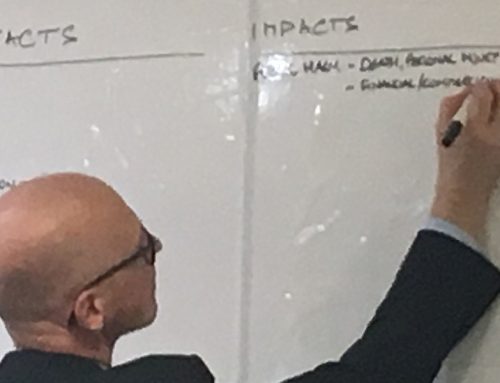Working under pressure is one of the most important aspects of emergency management. The immediate response to a major emergency event happening on site often determines the success or otherwise of the eventual outcomes. Paradoxically, when people are faced with sudden, unexpected situations, they don’t always behave in ways that you would ordinarily expect. People function well on a normal day-to-day basis but can often show an impaired ability to cope in an emergency. However, with the right training and practice, common but unhelpful responses can be overcome.
Cognitive performance
Perceived danger causes the brain to switch from a relatively slow, reflective, controlled way of processing information and making decisions to a relatively fast, reactive mode where decisions and actions are triggered by unfolding events. A release of chemicals in the brain such as adrenaline causes a switch from the higher-order reasoning approach to problem solving to fight-or-flight mode. This might save your life if you are in great danger and need to react very quickly but it can hinder performance when you need to understand the status of complex site processes and make decisions that require the careful analysis of a range of information and data.
This sudden difficulty with even simple mental processes means tasks take longer and more mistakes are made. One of the reasons for this is that our scope of attention narrows. Our ability to take in and evaluate the usual range of information and data we handle easily in normal circumstances becomes impaired. People exposed to highly stressful situations often report having a sort of ‘tunnel vision’, focusing solely on one specific aspect of the situation and ignoring broader issues, to the detriment of the eventual outcome. Think about how important this would be in the control room of a chemical manufacturing plant with complex processes and a multitude of data sources to consider.
Teamwork
Difficulty forming judgements and impaired decision-making not only affects people at the individual level but also at the team level. Emergency management and response usually involves teamwork, and effective communication with others is vital. However, the stress of being faced with a major emergency event can easily bring on negative emotions including fear, anxiety, worry, frustration and anger. This is particularly the case if there is little experience of the type of situation being faced. If negative emotions are not quickly recognised and controlled, they can easily undermine interpersonal relations and teamwork, just at the time when you need to be working at your best. Prior training and experience are significant factors impacting on an individual’s ability to down-regulate stress, allowing better judgement and more effective actions.
Another common response to danger is an inability to recall response first actions, plans and procedures. Stress and shock can be disorienting and have a significant negative impact on memory recall. This is one of the reasons why relying on a small number of easy-to-understand emergency management processes is a good approach. We teach universal emergency management and response processes that can be applied in any context. We also recommend putting these processes on charts and in pocket books, and so eliminating the need to rely on memory to recall every detail. This approach gets the response started in the right direction. Having well drilled, robust processes gives support and keeps the response on track.
Site Main Controller (SMC) and Site Incident Controller (SIC) training
The best way to overcome the debilitating effects of reduced cognitive performance in emergency management and response situations is by regular training and exercising using the full range of foreseeable major accident hazards specific to your site context. By modelling and practising dangerous scenarios and rehearsing effective responses we not only develop your plans and processes, but importantly, behavioural response patterns. These are stored in your memory and are ready to be quickly accessed and deployed when required in real emergency situations. The best way to program the brain with the correct responses is through regular training and exercises.
We have developed a competency framework and performance indicators based on the requirements of the SMC and SIC roles as set out in the Control Of Major Accident Hazards (COMAH) Regulations that address the regulatory requirements and provide the knowledge and experience for competence in these roles. We use a range of systematic processes, tools and techniques that can easily be applied to any organisational context. There is no better way to guard against the negative impact of stress on decision-making.
What makes the difference?
Eddistone Consulting has drawn together a team of specialists who have extensive collective experience, coming from industry, the emergency response services, the multi-agency response community, health & safety and education backgrounds, to develop and deliver a competency-based training and exercise framework with identified performance deliverables to measure effectiveness and assure competence.
We use a proven systematic approach that explores how to respond. We have core methodologies for each response level of Emergency, Incident and Crisis (Operational, Tactical and Strategic) management. The credibility and reality of our exercises, experienced in a safe environment where real learning takes place, is always valued by our customers.
How we can help
We recognise that many of our clients, especially in the COMAH-regulated sector, are under pressure to maintain mandated emergency management capacity. We are committed to providing you with emergency management support wherever possible throughout this pandemic. This is important to ensure that you do not fall behind with your scheduling backlog and to maintain the required capacity, despite the impact of absence and illness on safety-critical roles. We have two strategies to help you achieve this:
- We have developed remote methods for training and assessment, coupled with remote mentoring for the development of key roles. This facilitates accelerated learning and makes the best use of technology and advanced learning practices.
- We have a pool of experts ready to provide direct support, both remotely and in person, to reinforce capacity and mentor your existing capability. Our team of experts is ready to stand alongside your key emergency response personnel.
Contact us to discuss how we can help you.





